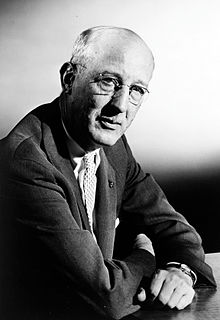Top 37 Quotes & Sayings by Bruce Catton
Explore popular quotes and sayings by an American historian Bruce Catton.
Last updated on April 14, 2025.
A singular fact about modern war is that it takes charge. Once begun it has to be carried to its conclusion, and carrying it there sets in motion events that may be beyond men's control. Doing what has to be done to win, men perform acts that alter the very soil in which society's roots are nourished.
Nathan Bedford Forrest ... used his horsemen as a modern general would use motorized infantry. He liked horses because he liked fast movement, and his mounted men could get from here to there much faster than any infantry could; but when they reached the field they usually tied their horses to trees and fought on foot, and they were as good as the very best infantry. Not for nothing did Forrest say the essence of strategy was to git thar fust with the most men.
What a general could do, Thomas did; no more dependable soldier for a moment of crisis existed on the North American continent, or ever did exist... Thomas comes down in history as the Rock of Chickamauga, the great defensive fighter, the man who could never be driven away but who was not much on the offensive. That may be a correct appraisal, Yet it may also be worth making note that just twice in all the war was a major Confederate army driven away from a prepared position in complete rout - at Chattanooga and at Nashville. Each time the blow that routed it was launched by Thomas.
Beneath everything else, North and West, there ran a profound, unvoiced, almost subconscious conviction that the [American] nation was going to go on growing-in size, in power, in everything a man could think of-and in that belief there was a might and a fury that would take form instantly at the moment of shock.
It began with one act of madness, and it ended with another. John Brown heard history's clock strike in the night and tried to hurry dawn along with gunfire; now John Wilkes Booth heard the clock strike, and he tried with gunfire to restore the darkness. Each man stood outside the human community, directed by voices the sane do not hear, and each kept history from going logically... The line from Harper's Ferry to Ford's Theater is a red thread binding the immense disorder of the Civil War into an irrational sort of coherence.
























